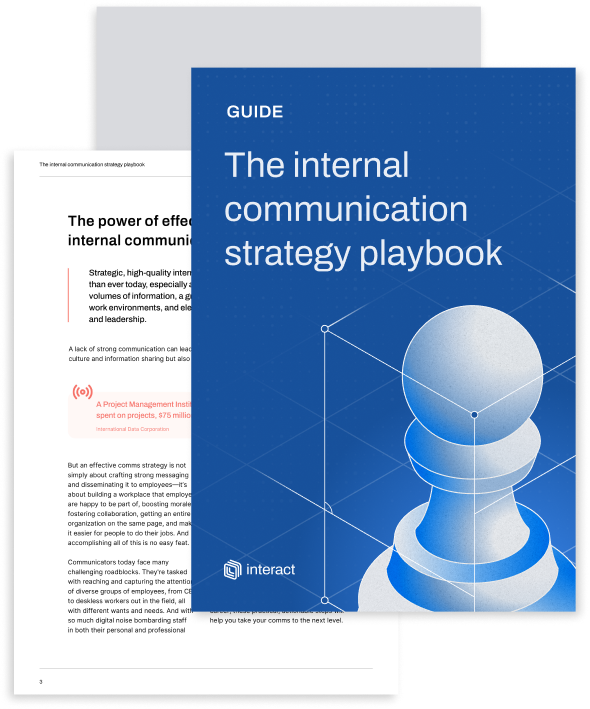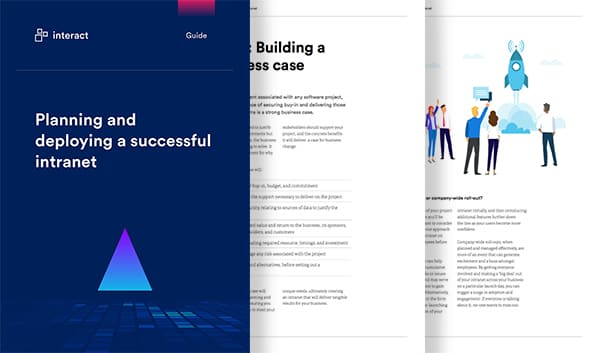Working in the shadow of the pandemic, it might feel a bit of a tall order to start practicing gratitude, but as research shows, promoting appreciation and positivity is key to good employee well-being and engagement. As Thanksgiving approaches, we look at why gratitude is so important and how we can be thankful and appreciative in a difficult period.
How’s your 2020 been? In a year that will go down in history for all the wrong reasons – there’s a good chance employee morale is low. The effects of COVID-19 have been – for many – devastating, life-changing, and a cause of great sorrow. Every individual has been impacted to some extent, to varying degrees.
As a result, this Thanksgiving at work – and outside of it – will be different from previous years. Families will remain apart; parades canceled, spending will be reduced for many. But while it may be hard to muster the holiday spirit, this year, it matters more than ever to give thanks. And encouraging this should start in the workplace.
What is gratitude?

What does it mean to be grateful? Defined as “the quality of being thankful; readiness to show appreciation for and to return kindness.” It’s the ability to see good in other things, outside of your own self. According to the Greater Good Magazine, appreciation and gratitude, although linked, have a nuanced difference. Researchers define appreciation as “the act of acknowledging the goodness in life—in other words, seeing the positives in events, experiences, or other people (like our colleagues).” Gratitude goes a step further: it recognizes how the positive things in our lives—like a success at work—are often due to forces outside of ourselves, particularly the efforts of other people.
Appreciation and gratitude are instrumental to a positive working culture and can help to transform the way employees work and improve internal PR. Practicing these two things can help build deeper connections among the workforce and approaches to work itself.
5 reasons why gratitude is essential in your organization

A survey carried out by the John Templeton Foundation shows that workers are least likely to express gratitude in the workplace. This is despite the fact that a lack of recognition is the number one reason Americans leave their jobs.
Perhaps one of the reasons behind this is that gratitude may be seen as unbusinesslike. In an environment of hierarchy, aspirations, and career-building, it may seem disadvantageous to acknowledge other people as playing a role in your success. When you want praise from senior-level, sharing your reliance on your colleagues can often – and wrongly – be considered counter-productive.
“Gratitude is a recognition of our interdependence of the fact that success is the result of team effort” Forbes.
When you have gratitude in the workplace, you have an engaged workforce. At least, that’s what the statistics tell us. In the US alone, $11 billion is lost every year through staff turnover. A huge part of this is down to feeling disengaged. In fact 71% of US employees surveyed say they’re not fully engaged – a further 26% say they’re not actively engaged. The reason behind this? The respondents blame a lack or total absence of gratitude. Employees are more likely to be spoken to about what they’re NOT doing, rather than what they are.
Free ebook – 14 steps to great internal communication
In fact, gratitude can significantly impact the way people interact with each other, approach their work, and regard themselves. Some psychologists call it the gateway drug of emotions – something that acts as a catalyst to a slew of other positive feelings that include compassion, patience, resilience, and magnanimity. And when people exhibit gratitude, it can trigger a host of benefits which include:
Improved physical health
According to a study carried out in 2012 that appeared in Personality and Individual Differences, people who exhibit gratitude are less likely to experience aches and pains and more likely to feel healthier than those who don’t. Grateful individuals are more likely to take their health seriously, eating better, exercising more and scheduling check-ups with their doctors too.
Improved mental health

Think about someone who exhibits no thankfulness. What traits are they more likely to possess? Those people are more prone to resentment, envy, and feeling victimized. These toxic emotions can be damaging and dangerous. Gratitude reduces these feelings, according to Robert A Emmons, who has carried out many studies on the links between gratitude and mental well-being. His research confirms that gratitude effectively increases happiness and reduces depression.
Reduction in negative emotions
When you feel grateful, you’re more likely to work better, even in a hostile environment. In a 2012 study by the University of Kentucky, participants who demonstrated gratitude were less likely to respond negatively to others. They also experienced more sensitivity, compassion, and empathy towards others – essential traits when working in business and within teams. By having a grateful perspective, people are more able to overcome negative thoughts and feelings and more likely to have a wider angle on events that take place.
Higher self-esteem

According to a study published in the Journal of Applied Sport Psychology in 2014, athletes who practiced gratitude experienced an increase in self-esteem, which, in turn, improved their performance on the track or field. Applied to business, this saw similar effects on social comparisons. Individuals practiced in feeling grateful were less likely to compare themselves to people on a higher salary or a more senior position within the organization. Rather than feeling resentful, they were more likely to recognize other people’s accomplishments.
Increased resilience
This year has been a test on people’s resilience, so it’s interesting to learn how feeling thankful can help people overcome trauma. Gratitude acts like a ‘protective factor’ in cases of PTSD, according to a number of studies carried out on people who have been affected by a major event like a natural disaster, or a homicide. The suggestion being that people high in gratitude are able to transform their stress into growth in the aftermath of trauma.
During the dark and stressful times, people are able to use these innate and learned positive emotions to burnish their resilience, one of the many survival tactics employed by the brain to get through hardship.
How to give thanks in a pandemic

In the run-up to this year’s Thanksgiving, organizations should help the mood of their employees. If COVID-19 restrictions and the effects of this year have resulted in low morale, promoting gratitude is a crucial part of spreading happiness.
But while Thanksgiving gives us the opportunity to focus on gratitude, being thankful should be practiced more than once a year. This way of thinking should be a constant – at home and in the workplace. And when it comes to promoting it, internal communicators are in the best position to foster a culture of gratitude, appreciation, and thankfulness.
So where can we look for reasons to be grateful?
Free ebook – 14 steps to great internal communication
Work has been a constant in the chaos

We may occasionally moan about our workloads, the long hours invested in hitting deadlines, and the lack of separation between home and work (it’s been crucial to achieving some kind of work-life balance in lockdown). But during the pandemic, work has been many things for many people: a connection to the outside world, a distraction to COVID-related anxiety, a source of fulfillment, and provided much-needed routine.
With our colleagues, we’ve managed to work through the chaos, support each other, and occasionally let off steam with a team quiz or a Friday catch-up. When the world has felt chaotic, work has been a steadying hand, providing us with tasks, schedules, and ways to make ourselves accountable. For many of us working desk-bound jobs, it’s been easy to move operations to our home, where we’ve been able to continue working, while feeling safe. And in a climate where people are working in the front-line, or even losing their jobs, our work is something to be extremely grateful for right now.
Reassess what matters

One fundamental thing that the pandemic did to us was to simplify our lives. Contrast this year to the busyness of our lives last year. For many, life was a juggling act of family commitments, long working hours, and trying to maintain a social life. Long commutes cut out valuable time with our families. Staying late in the office and traffic would slow our return home. We were tired, time-poor and often overwhelmed.
Lockdown stopped all this. Suddenly, we were working from home. No commute gave us time to exercise, eat breakfast with our families, and talk together more. Communication became more focused, we shared our feelings in the highs and lows. Without the obligations of nights out, shopping, appointments, and travel plans, life boiled down to its chief constituents: work, rest, family, food, and nature. Exercise, cooking, crafts, more regulated sleep, and more time together became our priorities. Lockdown and restrictions have forced us to reflect on what is important and what it is we really care about.
Reframe the lows
2020 has been an emotional year. The strangeness of the first days of lockdown, the restrictions on seeing family and loved ones, the unknowingness of everything – the entire experience was a first for the entire world.
But whenever we experience a trauma, sadness, a low – it’s essential that we reflect on how it has shaped us.
We may have discovered that we are a lot more resilient than we first thought. We may have set up a new routine, learned a new skill, become more adept at living with change. Perhaps we’ve gained a better understanding of our work colleagues, we’ve spent more time with our families, managed time better. We’ve also endured the highs and lows of this year with our work teams, whom we’ve been connecting with daily. As a result, our teams have become closer, more intuitive, and we’ve managed to keep going throughout it all. It’s time to remind your employees that these small successes are important.
Showcase your achievements

Speaking of which, as we reach the end of a tough year, now might be the ideal time to showcase the talents, successes, and victories of your colleagues. While everyone has experienced challenges this year, our teams deserve some gratitude and recognition for their resilience, hard work, tenacity, and talent. Whatever you’ve managed to achieve as an organization this year becomes even more impressive when the circumstances are taken into account.
In time for Thanksgiving, it’s a good idea to highlight the great work done in your department to the rest of your organization. Using your intranet software or company comms tool, write a blog listing all your victories this year. These could also include personal achievements as well as work-based wins. Showing off these accomplishments to your business recognizes each individual employee and enables the workforce to share your pride.
Champion your colleagues
Showing gratitude for others can have a massive impact. For anyone who has the slightest experience in people management will know, recognizing employees for good work or behavior has an incredible effect on morale and culture. Acknowledging an action, effort, or a result that aligns with the organization’s goals and values has myriad benefits (see also, peer-to-peer recognition). From increasing employee satisfaction to boosting productivity, a lot can be achieved through the simple acts of acknowledging and appreciating individuals within your organization.
Peer-to-peer recognition is one of the most important aspects of employee engagement. Providing a tool or a platform for employees to share appreciation for their colleagues is critical – particularly in this period of en masse remote working. Where individuals work alone, separated from their team and the physical environment of the office, it’s imperative that all organizations should practice some kind of recognition program within their workforce. Whether it’s leaders singling out particular individuals for exemplary work and exceptional merit or colleagues giving shout-outs to each other for favors and going out of their way to help, any gesture of appreciation builds goodwill and contributes towards higher productivity.
This Thanksgiving, as people spend time away from their work schedule, set the groundwork in your organization by saying thanks to them, and encouraging each employee to show appreciation and gratitude too. Moving the focus off present uncertainties and on to the many positive results of this year can act as a cultural reset for a business. And when this culture of gratitude is established, it can create many more positives that can carry both employee and organization into the new year with a new perspective.


